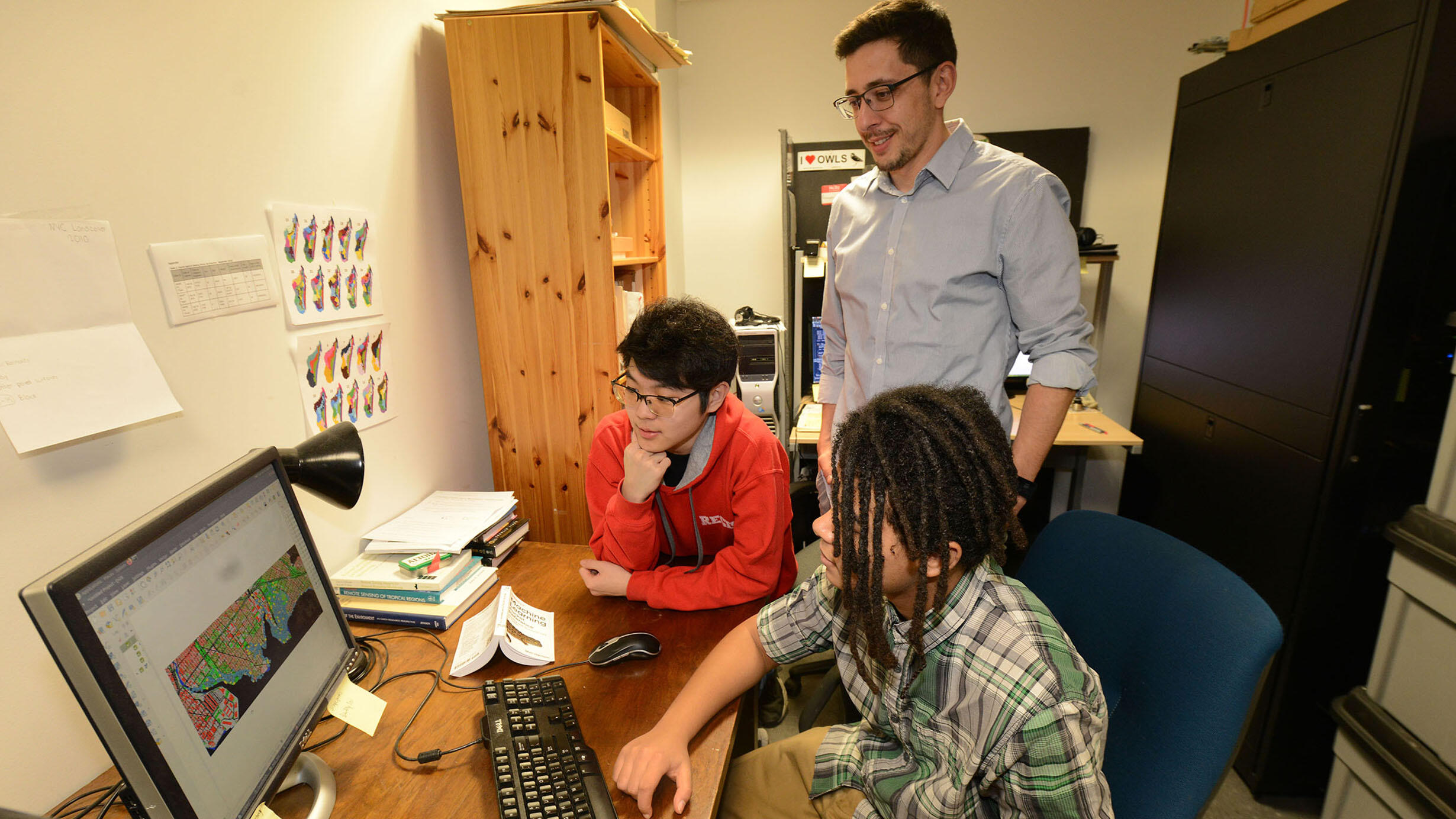 SRMP students Henry Lee (left) and Hunter Dillard-Jakubowicz (right) reviewing coyote telemetry data with Museum scientist and mentor Peter Galante (center).
SRMP students Henry Lee (left) and Hunter Dillard-Jakubowicz (right) reviewing coyote telemetry data with Museum scientist and mentor Peter Galante (center).How has the COVID-19 pandemic affected the trajectory of students pursuing a STEM (science, technology, engineering, and math) major or career? And what kinds of resources and support can help counteract these disruptions?
To help answer these questions, the National Science Foundation (NSF) recently awarded a RAPID grant to the Museum in partnership with SRI International (SRI) for a one-year project aimed at better understanding the impact of the pandemic on students in STEM.
“Following the outbreak of the COVID-19 pandemic, college students engaged in STEM suddenly found their internships cancelled and their academic pursuits severely disrupted. How can one pursue STEM if they can’t even go to class or the lab?” said Preeti Gupta, the Museum’s director of youth learning, who is part of the research team.
The grant builds on the Museum’s four-year, NSF-funded “Staying in Science” study, which is examining the STEM trajectories of 560 youth who graduated from the Museum’s Science Research Mentoring Program or from one of its 22 partner programs that provide science mentoring to New York City high school students, many of whom are from groups historically underrepresented in STEM.
How can one pursue STEM if they can’t even go to class or the lab?
The study has revealed that more than 65 percent of these programs’ graduates were seeking or had secured internships and summer jobs in STEM fields, and more then 75 percent had been pursuing a STEM major or career. With the COVID-19 pandemic, many of these employment opportunities have been cancelled, and those studying STEM are now in a far more precarious position as they navigate the challenges of remote learning.
The grant will enable data collection that captures a time period when students had to seek alternative summer programs and make plans for higher education. The research team will be administering surveys to all 560 current “Staying in Science” study participants—as well as adults within their support networks—to understand the disruptions caused by the pandemic, and to identify potential supports they could use in their academic and professional pursuits. A subset of 16 students will also be followed to inform the development of case studies that can help paint a fuller picture of how COVID-19 is impacting student trajectories.
Study data will be collected and analyzed this year, with the dissemination of findings to higher education institutions at the local, state and national level to begin in the late fall and to the general public in early 2021. The educators administering the study are hopeful that the findings can inform science education efforts as they seek innovative solutions to the challenges resulting from the pandemic, Gupta said.
Learn more about COVID-19 and related research at the Museum by visiting the Science of COVID-19.